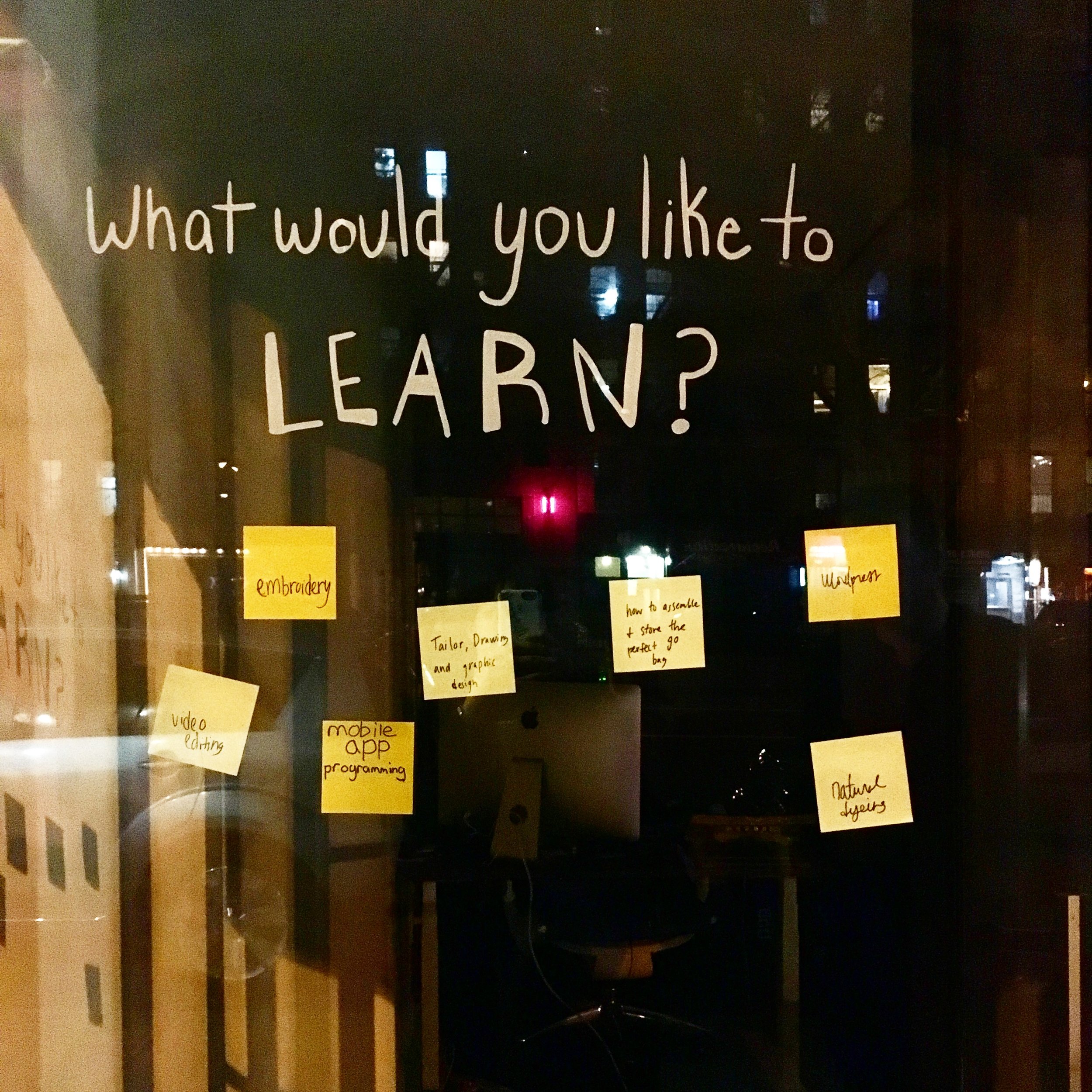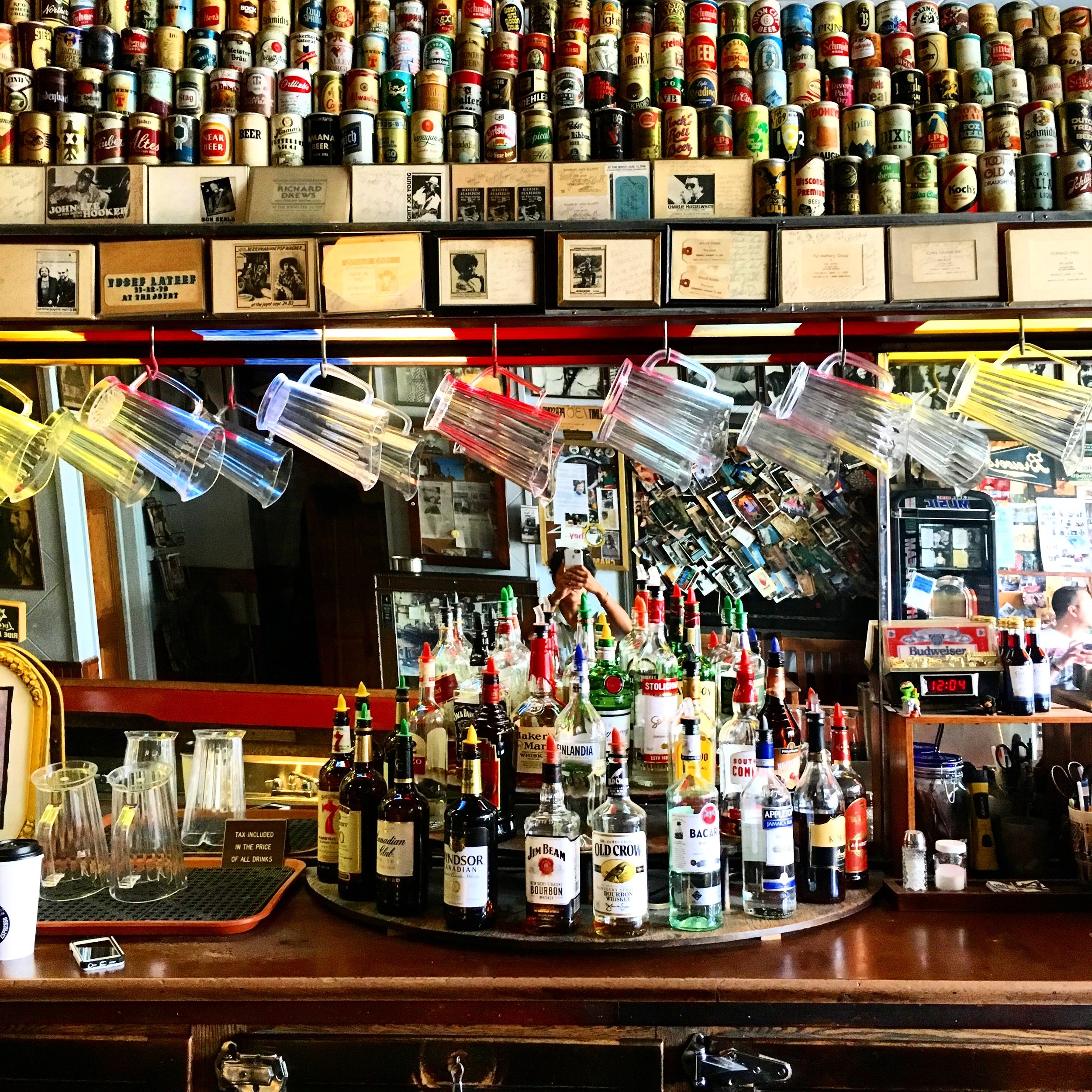Last month I went to the National Museum of African American History and Culture, the latest edition to the Smithsonian suite of museums and, possibly, the most powerful and essential.
I was overwhelmed by the design. Astonished at the exhibits. And blown away by the experiences that African Americans as a community and as individuals have had in what we call the United States of America. It's not that I did not know the history, though you could argue I knew only a surface level version, the one glossed over in high school US History class and debated in University cultural studies courses, but I did not have a full understanding of the experience given that I am not African American and had very little exposure to African Americans as a child growing up in suburban Arizona. My relatives experienced racism; I experience racism, albeit without the magnitude of slavery. I grew up hearing about the segregated world of my grandparents and their parents, separated from the white community and discriminated against for the color of their skin.
The museum gave me a foundation of understanding, one to frame and help make sense of the modern day world we inhabit, how far we have come and how much further we have to go. Not just African Americans, but all of us. As a country, we seem to value money over people. Without greed and a desire for growth, the slave trade may not have happened (Thank you Portugal!). The museum showed me how amazingly destructive our country's economic foundation started out. A recent visit to Detroit showed me how screwed up we still are, and a hopeful path forward.
Detroit has been called many things and its history is as complicated as any other city, but the effects are in-your-face and its boom-bust stories have been told like urban fairy tales. Detroit, as a city, as a myth, as a metaphor, has been idolized and theorized and dissected. 'The afterlife of an American Metropolis,' the subtitle of the book Detroit is the Place to Be by author and Detroit-area native Mark Binelli, is one of the most poignant descriptions of its modern state. The book is a must read read for anyone interested in American life--past or present.
Not that many people seem to have actually visited Detroit. (Or at least, not many people that I've asked in the past few months). It's easy to say things about a place when you only have read about it or seen it in photographs, but it's hard to say anything about a place when you've actually walked on the streets and talked to the people. I've always felt tongue tied after trips or long stays in another place. You don't want to offend. You don't want to get it wrong. You don't want to miss something. But my recent visit to the NMAAHC made me an antenna and I can't help but share my perspective.
We mostly drove. Cars are necessary to get around, something that kind of shocked me. Everywhere we went we were told (by Google maps, until we changed the settings) to get on a highway. The way the highways separate the city reminded me of the invisible lines that segregated public spaces. The ways in which Americans have tried to separate themselves from that which they do not know, those who they don't understand. Cars allowed, accelerated and maybe even forced people to separate themselves, from the street and from each other. They also created a scale that is no longer human. From an airplane coming into a city you can see the roads and highways like neatly organized pathways, carefully decide who passes and how. From the street view, you just see swaths of asphalt--empty with the promise of a vehicle or busy with traffic preventing you from crossing. Cars may have once been a beacon of modernity, but I see them now as an omen of private/public separation. A guarantee that you will not need to be inconvenienced or forced out of your comfort zone. A symbol of convenience that is literally destroying our lifeline (the earth). I realize many people, many Americans especially, depend on cars to get to work and take care of their families. It is an inconvenient truth.
Driving in Detroit made it clear how incredibly hard it will be to create human-scale cities, especially in areas that were developed post-car. The answer Detroit seems to have settled on, for now, is the concentration of energy and people-scaled centers in hubs, or mini-neighborhoods. You see this in a lot of cities--town centers or places with a variety of things to do. People can drive to these centers, park their cars and walk around. Put simply, they are places to gather. There are many of these types of places in Detroit. It is not a trend, it is a necessity. It gave me hope.
We also talked to strangers. A lot of strangers. Shop owners, security guards, artists, waiters, urbanists, moms, gallery owners, people sitting next to us at brunch. It was not easy, it is never easy, but it was worth the (pain/anxiety/embarrassment/insecurity) because it showed us what Detroit is really about -- the people.
Detroit is beautiful. It is full of decaying buildings and fields, but more importantly it is full of passionate people. Everyone we talked to had something to say, something to stand for. They created place through art spaces and manicured lawns, warehouse murals and craft cocktails. They gathered and pondered, they opened their doors and shared multiple perspectives. They demonstrated stamina and a deep down unwavering belief that this world can be better, that what you do and how you do it makes a difference. That actions make a difference. That people matter. That people matter more than things. That people make places and places make memories and memories make history and history means a past. Detroit has a rich past, and, after spending time with the people of Detroit, I think it will have a rich future.
Click through for photographs from my visit.

























 Anywhere. Anytime. Anyone. Anyplace.
Anywhere. Anytime. Anyone. Anyplace.